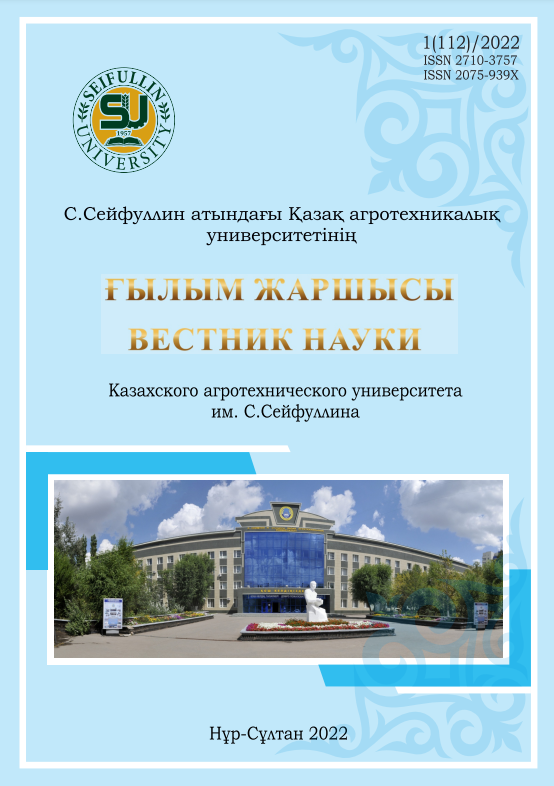MONITORING OF LEAF RUST (PUCCINIA RECONDITA) OF SPRING WHEAT IN NORTHERN KAZAKHSTAN 2019-2021
DOI:
https://doi.org/10.51452/kazatu.2022.1(112).930Keywords:
wheat; cultivar; pathogen; leaf rust; resistance; phytopathology; epiphytotiaAbstract
The study of resistance to leaf rust in wheat fields is one of the urgent problems in the world and in Kazakhstan. Leaf rust disease (P. Recondita) is one of the most dangerous diseases of wheat, and it causes quite large economic losses in wheat yield. The fungus Puccinia triticiana, the causative agent of leaf rust infection, is adapted to various climatic conditions. Epiphytoties of leaf rust slowly cover many continents, leading to a loss of productivity. In the north and east of Kazakhstan, leaf rust develops annually. In 2019-2021, monitoring of leaf rust was carried out in the fields of North Kazakhstan, Akmola and Kostanay regions. According to the results of the study, In 2019, in the Novakubansky rural district of the Shortandinsky district, Akmola region, the Shortandynskaya 95 cultivar was identified with the lowest leaf rust infection, the infection rate was 0.6%, and the prevalence rate was 8%. In 2020, cultivars of spring wheat Karabalykskaya 70, Aina, Tauelsizdik 20 and Steppe were identified on the sown areas of the peasant farm of the Karabalyk agricultural enterprise LLP, which showed high resistance to leaf rust. In addition, as a result of monitoring in the Kostanay region in 2021, spring wheat cultivars Aina, Fantazia, Asangali 20 and Fantazia showed high resistance to leaf rust, no signs of the disease were observed. It is now necessary to control the spread of P. Recondita Rob. Ex Desm, as well as the selection and implementation of disease-resistant cultivars.

